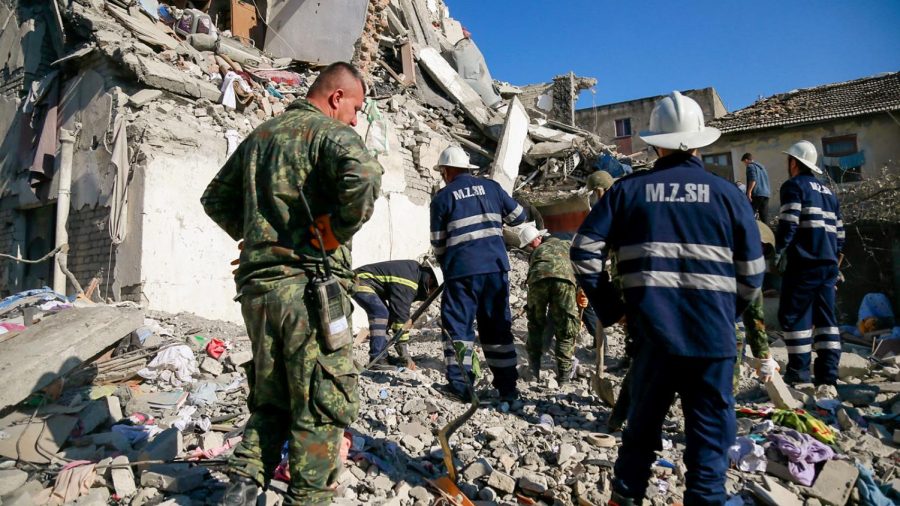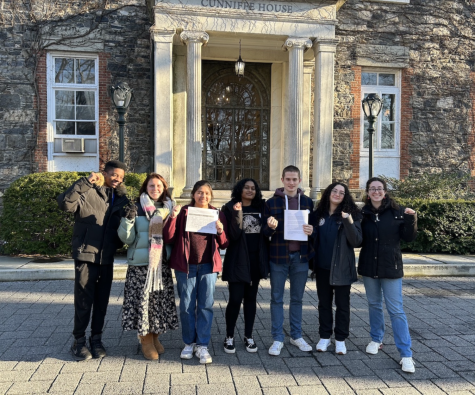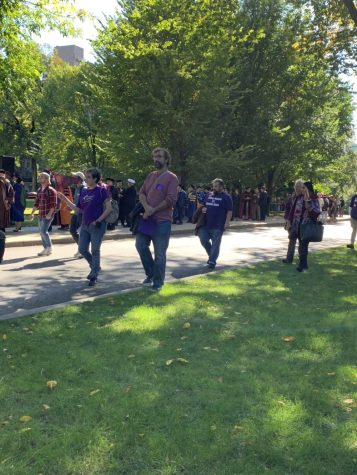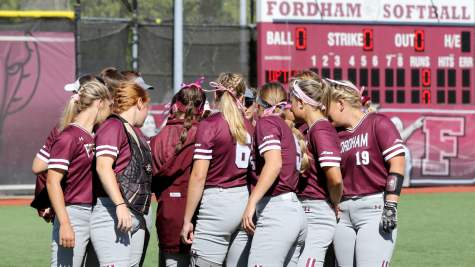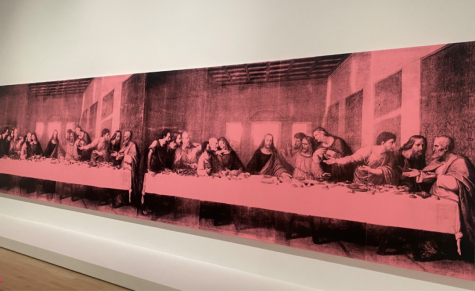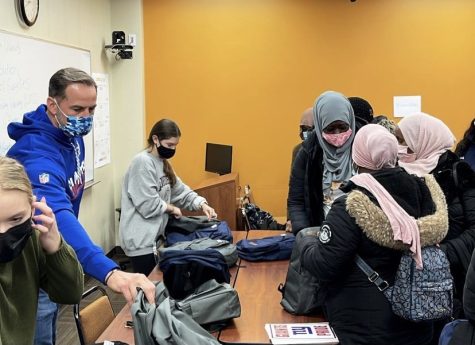Local Organizations Bring Awareness to Albanian Earthquake
A 6.4 magnitude earthquake struck Albania in the early morning on Tuesday, Nov. 26, destroying buildings and trapping people in the rubble.
According to Albanian authorities, the aftermath left 51 people dead, over 2,000 injured and nearly 4,000 homeless — with the greatest damages seen in the areas of Durrës and Thumanë — making the earthquake one of the deadliest the country has felt since 1979.
With a large population of Albanian Americans residing in the Bronx, the red and black flag lined the streets — including Arthur Avenue — as an act of solidarity .
The same day, Fordham’s own Albanian Club hosted its annual “Albanian Night,” where Albanian American students on campus gathered to embrace their culture through food, music and dance. Yet this year, they did so in hopes of raising awareness about the recent earthquake.
Melisa Gjokaj, GSB ’22, treasurer of Fordham’s Albanian Club, said the club raised a little over $100 for those in need that night.
“If people of the Bronx are aware of the earthquake, it’s likely that more will donate (both Albanian and non-Albanian),” said Gjokaj. “Our first donation during Albanian Night was actually from a non-Albanian, whom immediately took out her wallet once she was informed of what we were raising money for. If you live or go to the Bronx often, it’s likely that you will know Albanians and our culture, and many people love to learn more about it, as we’re a culture that’s really close and always supporting each other.”
Albanian American Marko Kepi, of the organization Albanian Roots, was a guest speaker at the Albanian Club’s event. After the earthquake hit, Kepi organized his own fundraiser which raised close to $1 million in less than 24 hours.
Mark Gjonaj, New York City council member of the 13th Council District in the Bronx, held a fundraiser of his own, right before flying to Albania with engineers ready to help the cause.
“Whether you pray, whether you contribute financially, whether you give your time, whether you have a profession that can give back to our people in their greatest time of need,” Gjonaj said to the fundraiser attendees. “What you’re doing tonight, is going to make a difference in the lives of many — so they know they are not alone, that we have not forgotten them and that we all have a role to play.”
In Albania, rescue workers from neighboring countries including Greece, Kosovo and Italy, have come together to provide aid and relief for those who have lost their houses and loved ones as a result of this natural disaster.
A number of the families affected have been placed in camps, while others, because of the cold, have been sent to hotels willing and able to house the thousands displaced from their homes.
Pandeli Majko, the Albanian Minister for Diaspora, told the Ram that the first phase of the national crisis, which includes helping those in need, has been concluded with the help of external emergency forces. One of the largest deployments came from Kosovo.
“The second phase is focusing on reconstruction — fixing the buildings that have been destroyed and evaluating the ones still standing to decide whether or not they meet requirements to withstand any future earthquakes to this magnitude,” he said.
Experts from outside the country have offered assistance in assessing the damages and helping map out the country’s next steps.
“This earthquake was a lesson for Albania,” Majko said.
Earthquakes are not uncommon in the area between the Eurasian and African plates. Just two months ago, the country was hit with a magnitude-5.6 earthquake. No fatalities were reported, yet many buildings were destroyed.
According to Majko, structural stability will be one of the government’s main priorities when moving forward during reconstruction.
With Albanian Independence Day on Nov. 28, many of the festivities throughout the country were canceled. Yet Albanian communities from around the world used the “flag” celebration to help raise money and awareness.
Other supporters included Albanian American singers such as Bebe Rexha and Rita Ora, who is personally sponsoring families affected by the earthquake by rebuilding their homes. Those who have the means to contribute financially have been able to send money through GoFundMe.
Within three days since the earthquake, Albanian diaspora have raised over $13 million in aid.
Albanian Prime Minister Edi Rama called on the international community for both financial and reconstruction help. Organizations such as UNICEF are accepting donations to those affected by the earthquake. To donate to the cause, visit UNICEF online.



































































































































































































